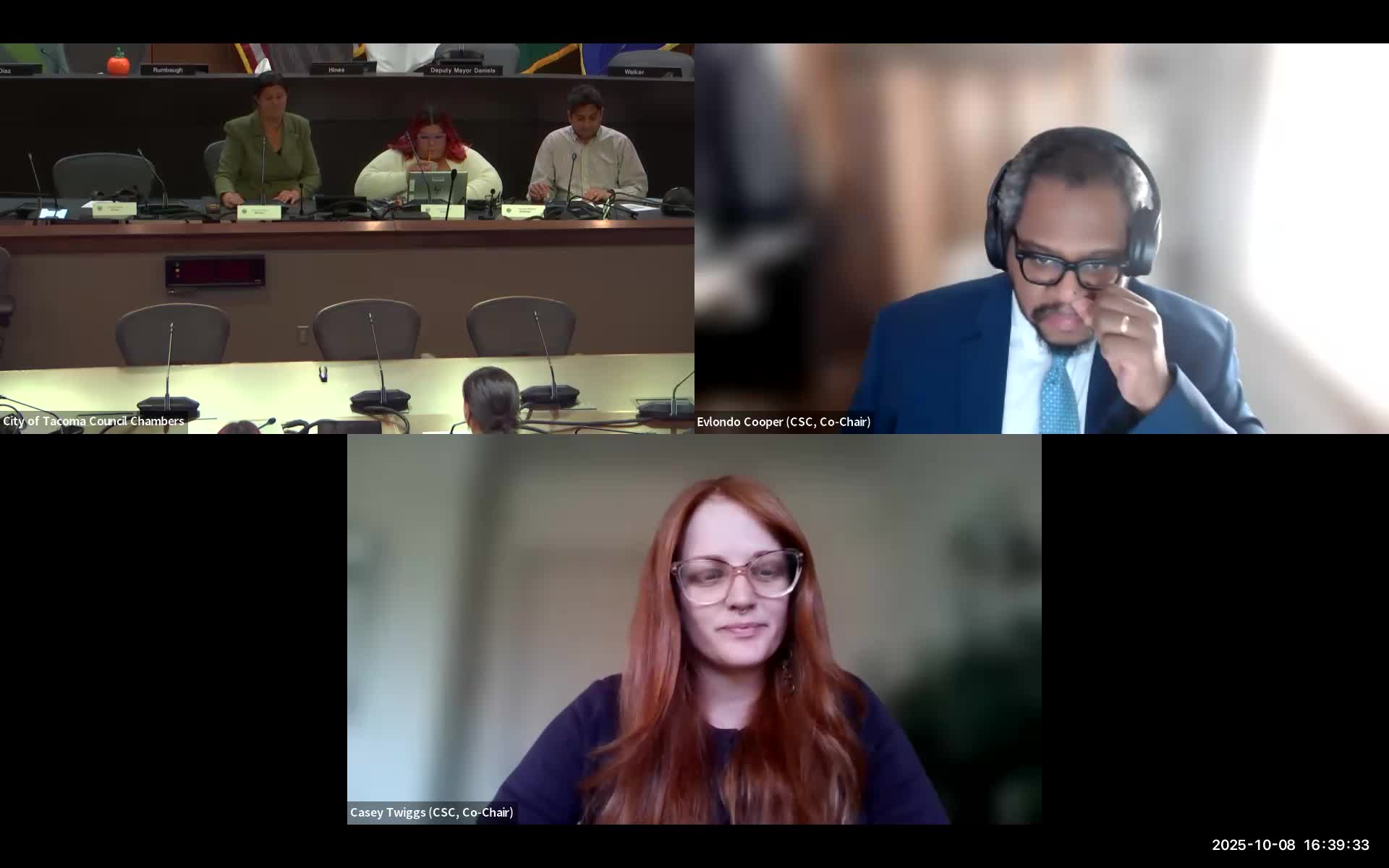Climate commission warns staffing shortfalls slow Tacoma’s Climate Action implementation
Get AI-powered insights, summaries, and transcripts
Subscribe
Summary
The Climate and Sustainability Commission told the IPS committee that the city’s sustainability office has shrunk from eight staff to one, which commissioners said is delaying implementation of the 2021 Climate Action Plan and other priorities while the commission continues to provide recommendations.
Casey Twiggs, co-chair of the Climate and Sustainability Commission, told the Infrastructure Planning and Sustainability Committee on Oct. 8 that the commission is working to hold the city accountable to the Climate Action Plan adopted in February 2021 and to help shape the plan’s update through 2027.
The commission’s work, Twiggs said, focuses on implementation and accountability: “We bring multiple perspectives into the same room with an emphasis on community input, and to add transparency to the city's goals and actions related to climate change, sustainability, and community planning.”
Commission co-chair Yvando Cooper described several recent activities, including formal recommendation letters on the city budget, permitting, transportation and the Tideflats comprehensive-plan amendments, outreach events such as a Sustainability Expo and a climate leadership cohort, and regular meetings with council and staff to address staffing and coordination needs.
Commissioners told the committee that the Office of Environmental Policy and Sustainability (OEPS) moved into the City Manager’s Office and the new Center for Strategic Priorities last October, but the office’s staffing has fallen sharply. “About a year and a half ago, the Sustainability Office had a team of eight led by the division manager. Today, that team is down to one staff member,” Cooper said. “We share this not as a criticism, but to illustrate how capacity directly affects implementation. When staffing stalls, so does progress.”
Commissioners said not all departures were layoffs; two staff left voluntarily citing budget uncertainty. They added that rehiring for at least one position has been described publicly as a leadership priority but that no job announcement had been posted in the previous three months.
The commission also noted it was institutionalized from a resolution to an ordinance last December after the charter review committee recommended reflecting climate resilience and sustainability in the city code. Commissioners said they welcome the ordinance but have not yet seen practical changes in how the commission’s recommendations are incorporated and asked for clearer guidance on any changed roles or responsibilities under the ordinance.
Looking ahead, the commission said it will review the Tideflats amendment and the critical areas code updates, and is exploring a joint meeting with the Planning Commission to better link land use and climate considerations. The commission reiterated priorities raised in its June meeting with council: clarifying OEPS’s role within the City Manager’s Office, sustained investment in resilience hubs, tree canopy preservation, and safe mobility infrastructure.
City staff present at the meeting confirmed they had received the commission’s recent letters and that those letters are added to the committee packet for public record. The IPS committee thanked the commissioners for their work and encouraged continued communication between the commission and council.
The commission asked for clearer direction from the City Council on how the ordinance and new structure should change the commission’s operations; no formal action was requested or taken by IPS during the Oct. 8 meeting.
